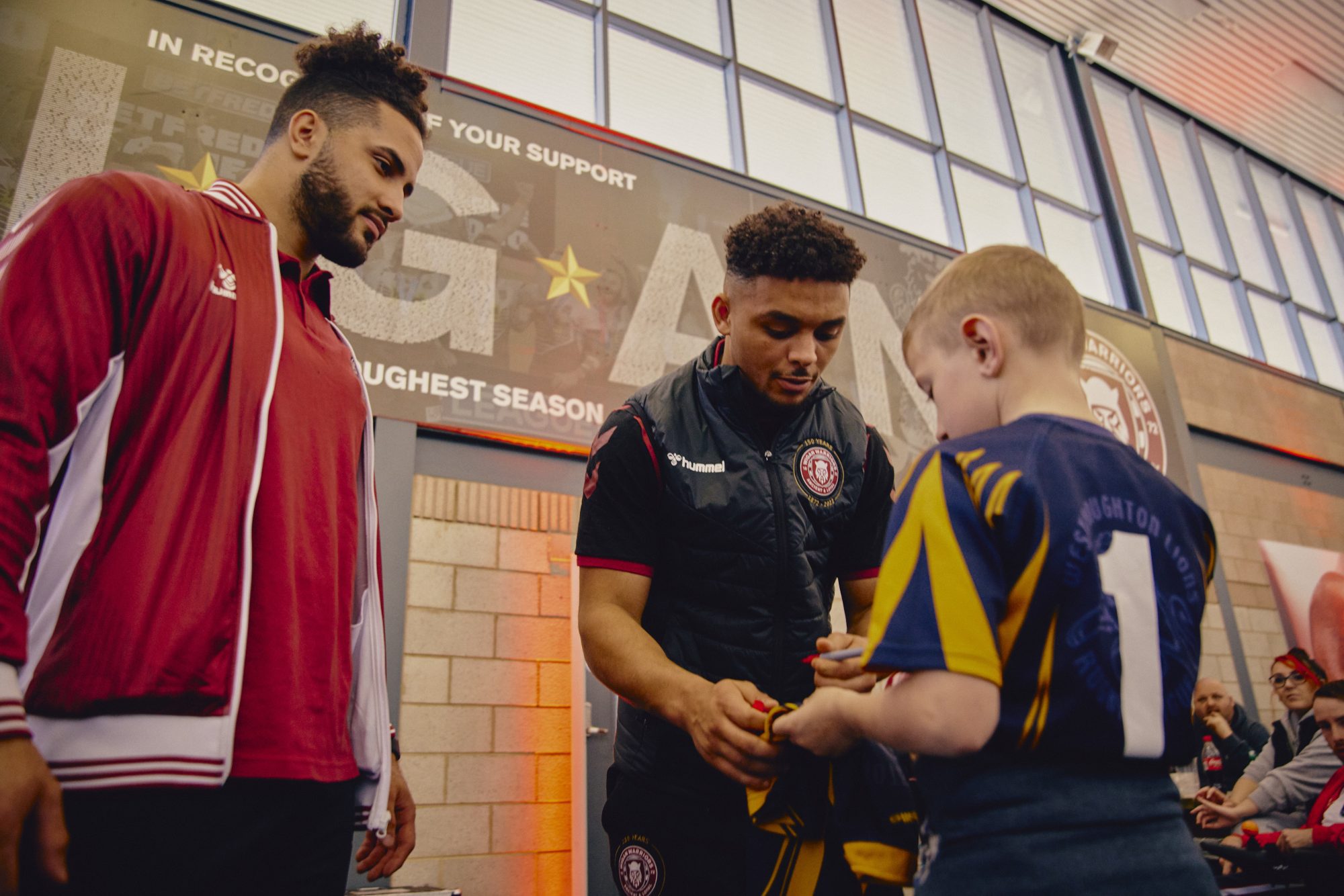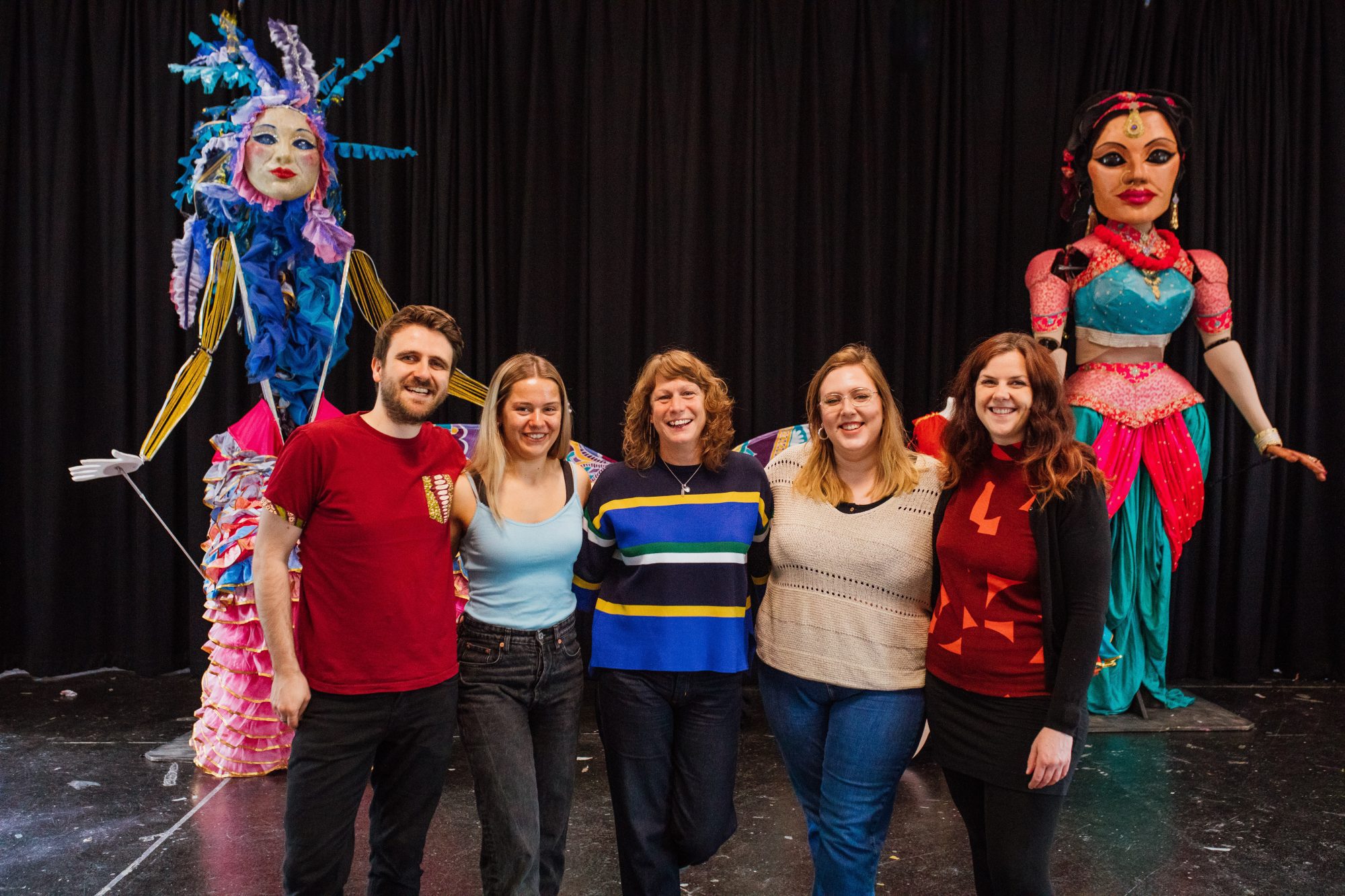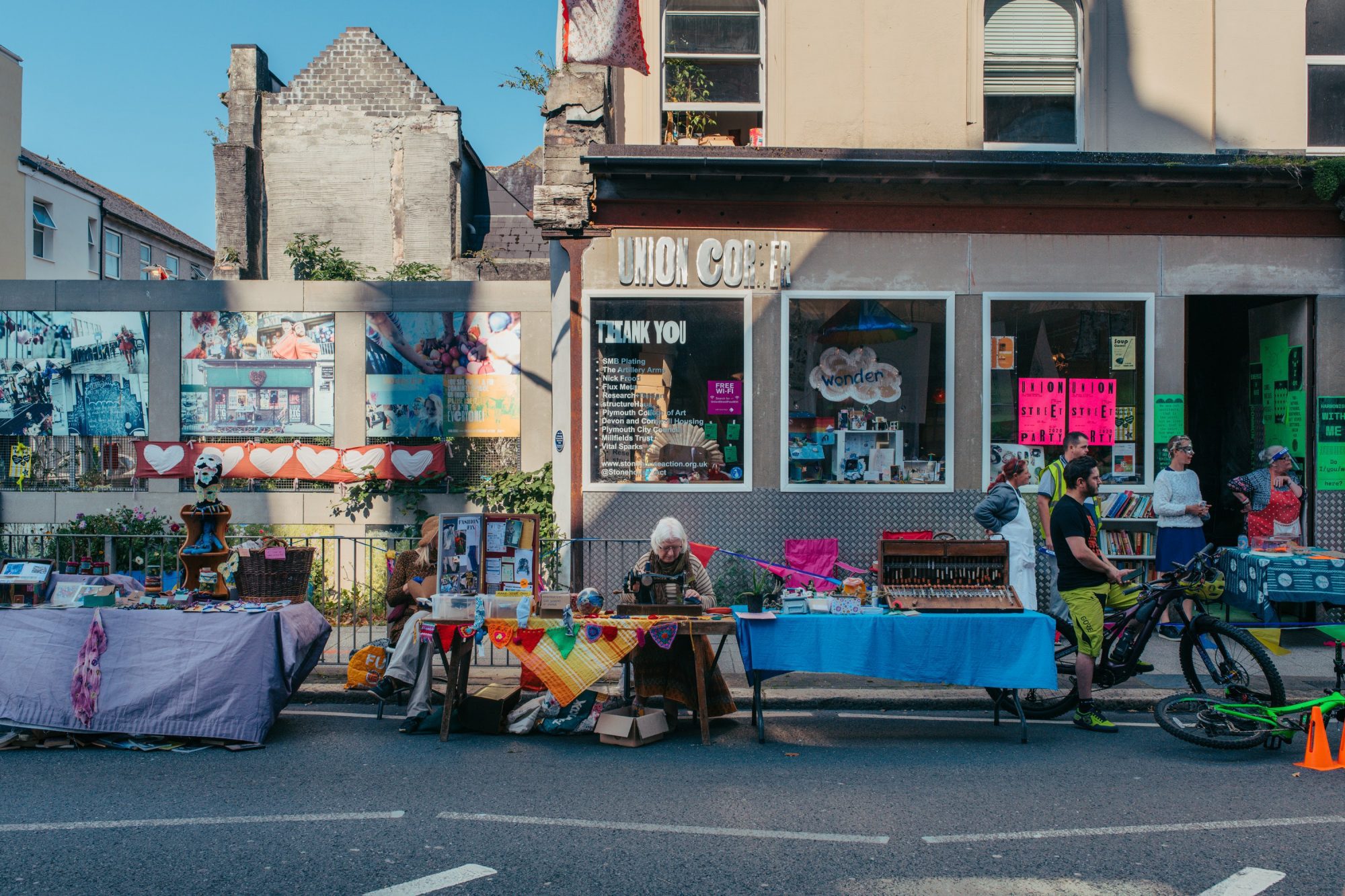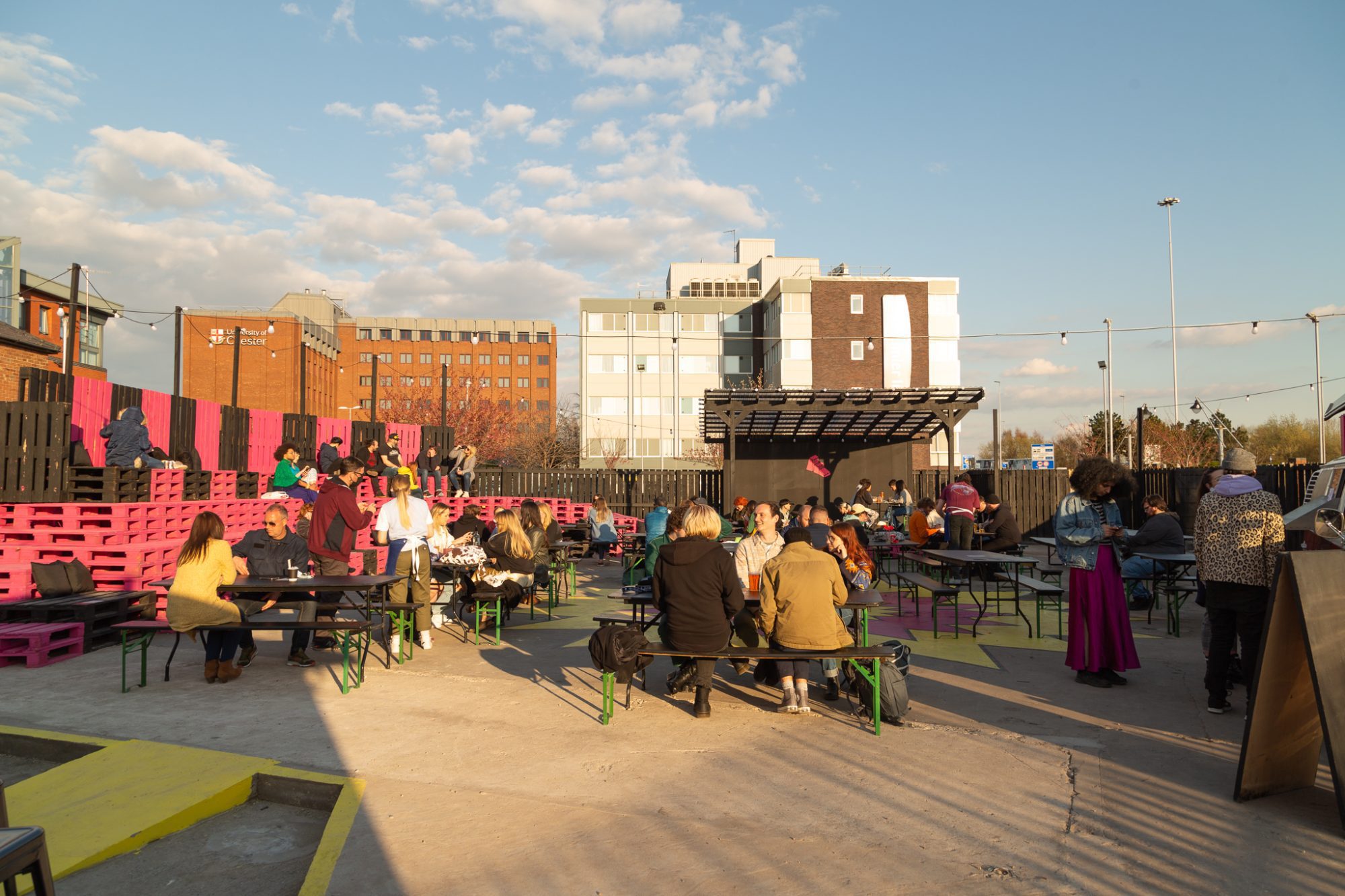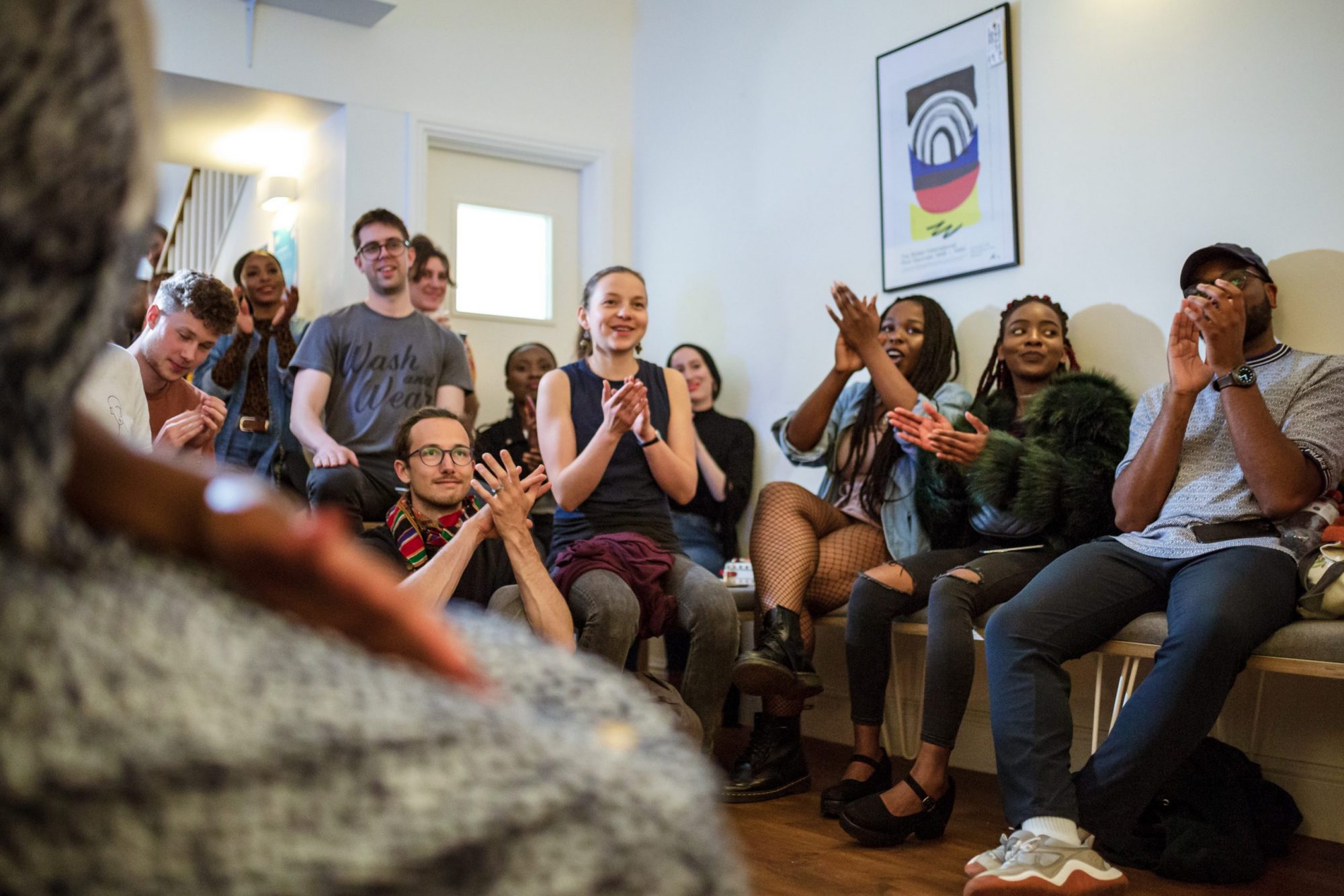Even though Radcliffe is the birthplace of Oscar-winning film director Danny Boyle, this market town in the north of Manchester has a history synonymous with the cotton and paper industry more than it does the glitz and glam of Hollywood. It was once a town at the heart of the industrial revolution but, much like many other places across the UK, suffered post-industrial decline and it became one of Greater Manchester’s most deprived areas.
This decline was reflected in a trip to the market, one that’s been in operation since 1851. The once bustling hub of the community was reduced to a handful of stalls struggling to pull in customers. Even a council refurbishment couldn’t bring it back to life and in 2016 it was still struggling. That is until the community stepped in to do something about it.
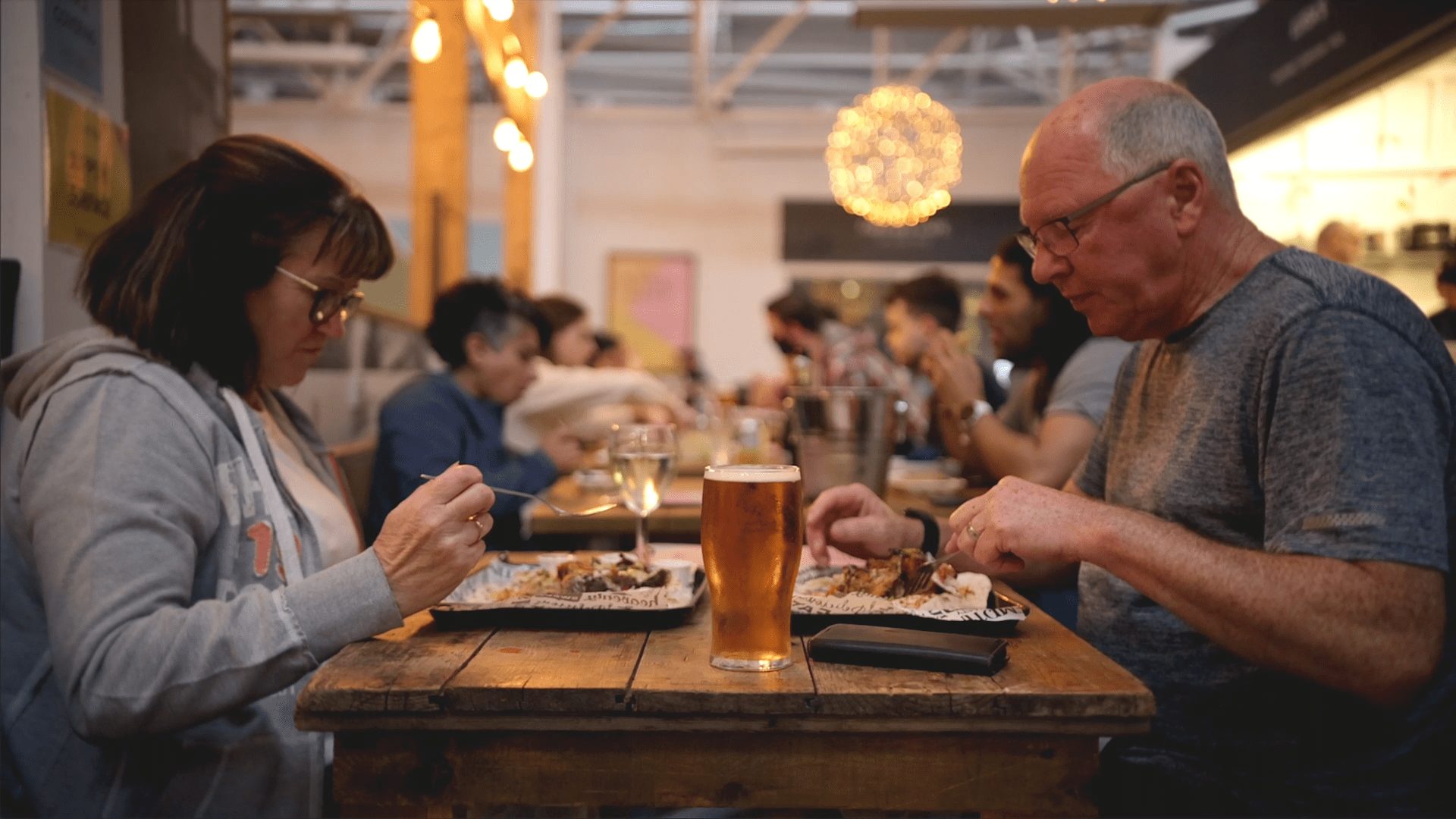
In 2018 a CBS was formed, ensuring local people had a voice in the market and helping it move forward. “When we opened there was only 5 stalls occupied,” says Alan Mackrell, the manager of Radcliffe Market Hall. Since becoming a community owned and ran operation, the market has been transformed and returned to its glory. “After lots of behind the scenes work, we opened properly in March 2019,” says Mackrell. “It was incredibly successful, we very quickly had to go and buy extra tables and extra chairs.”
Over 1,200 people visit the now fully occupied 30-plus stalls every week, with queues spilling out of the door to pick up a freshly baked loaf. Not only are people shopping, eating and drinking but also to take part in many of the regular activities and events. These have included everything from live music to indoor bowls and from Tai Chi to food masterclasses. The market’s dining hall has also made it a prime foodie destination, where people flock to sample Punjabi cuisine, sushi, sourdough pizza, Thai treats or Mexican street food.
The market has brought vitality to the area. “This is somewhere that has the potential to excite and become a really wonderful thing,” says Mackrell. “What we try to do is to make the market somewhere where people would go out of their way to visit – to make it a destination venue. Radcliffe has had some unpleasant nicknames in the past but we look at it as an unpolished diamond. The market has demonstrated there can be a catalyst for change in the area.”

It has also provided a major economic boost. Currently, the market employs 18 staff and engages with a further 25 volunteers including a board of 10. It pays all staff a Real Living Wage as part of its core principles and it also supports young people by working with local colleges and schools to offer work experience, as well as supporting young entrepreneurs with pursuing start-up businesses.
Also, by opening up the market in the evenings for events, they have created a night time economy from a location and an industry that was once solely associated with day trade. “There is a feeling of positivity within the town,” says Mackrell. “There are some buildings that have been boarded up and derelict for a long time that that are now being regenerated. There’s definitely been an improvement.”
Danny Boyle now has some competition on his hands as the town’s most celebrated export.

